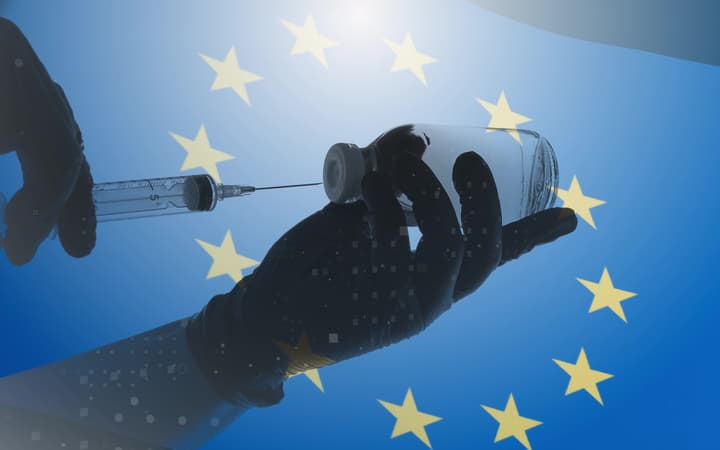Accelerating Pharmaceutical Patents at the European Patent Office
Fiona McLachlan

Typically, it has always been considered strategically advantageous for pharmaceutical companies to delay the prosecution of patent applications which relate to potential therapeutics. Given the average time taken for a drug to process through clinical trials and reach market approval is about 10-15 years, and with only 10% of therapeutic candidates which show promise in Phase I successfully proceeding through Phases II and III and reaching regulatory approval, it is normally prudent for patent applicants to wait and see what happens during the clinical trials so as not to incur unnecessary IP fees and to ensure their patent and commercial strategies are aligned.
Delaying the grant of a patent may also be advantageous to an applicant, as it provides an extended period in which more research can be performed which may drive strategy in relation to any divisional applications the applicant may wish to file. A longer prosecution period gives the pharmaceutical company opportunity to refine their product and its uses, and may allow for more specific divisional applications to be filed at a later date.
However, there are also instances when rapid prosecution of patent applications is of interest. The COVID-19 pandemic has shown the regulatory approval process can be expedited when there is urgent need for a therapeutic. It is well-publicised that a number of vaccines and monoclonal antibodies for the immunisation against and treatment of COVID-19 have been developed and tested in record time. Therapeutics which would normally take years to research and develop have been through the same regulatory process in a matter of months. In these instances, it would naturally be of advantage to ensure that patent prosecution of the relevant patent application matches the speed at which the drug is progressing through the regulatory testing.
Recently, the EPO published data relating to the number of European patent applications which have been filed for treatments and vaccines against coronavirus. Given the crowded field, some companies may wish to obtain granted patents as fast as possible so as to be in a stronger enforcement position compared to their competitors – particularly in view of the potentially limited marketing potential of such treatments. Previously the grant of patent applications for treatments for SARS and MERS was not aligned with the outbreaks and provided legal protection when the market for such treatments had moved on.
Additionally, rapid prosecution and grant of patent applications can be of interest for small drug companies or bio-tech start-ups who want to attract the interest of Big Pharma. A positive search, or ideally the grant of a patent covering an innovative therapeutic application, can be an efficient way to show the importance and commercial potential of such an invention.
There are, therefore, a number of reasons that pharmaceutical companies may wish to accelerate the prosecution of their patent application.
Accelerating prosecution at the EPO
At the EPO it is possible to take advantage of the “PACE” (Programme for the Accelerated prosecution of European patent applications) procedure to accelerate prosecution of European patent applications.
The PACE procedure at the EPO allows for the search and/or examination of any application to be accelerated. It is a simple request which can be filed at any time with no official fee payable and there is no requirement for justification.
The EPO will accept the request for accelerated prosecution where “practically feasible and subject to the workload of search and examining divisions”. This means that in certain crowded technical fields, current backlogs may mean that PACE requests are in practice ineffective. In addition, applicants who routinely request PACE for all or most of their applications will be required by the EPO to select a subset of applications for acceleration.
From 1 January 2016, PACE acceleration can only be requested once for each stage of the application prosecution process. That is, one PACE request is allowed for accelerated search, and one for accelerated examination. It is only possible to file requests for acceleration of the examination procedure after responsibility for the application has passed to the examining division.
If such a request is received by the EPO during examination, they will attempt to issue the first examination report within three months.
To maintain their accelerated status, applicants must adhere to conditions set by the EPO which help ensure the prosecution is expedited. Applications are removed from PACE if:
- the PACE request is withdrawn,
- the applicant extends a time limit, or
- the application is refused, withdrawn or deemed withdrawn.
If an application is removed from PACE (for example because an extension has been requested), reinstatement of the application into PACE again is not possible.
In addition to PACE acceleration, there are a number of other mechanisms to accelerate proceedings at the EPO, which can be used in conjunction with PACE, including:
– request for early search – the European Patent Office (EPO) will try to issue a search report within six months,
– request early publication of a European patent application- publication may still not occur for up to five months after the request is received.
Another option for accelerating prosecution in Europe is to make use of the “Patent Prosecution Highway” (PPH). This mechanism would be advantageous for applicants who are prosecuting a family of patent applications in a range of international territories.
The Patent Prosecution Highway (PPH) offers a mechanism by which positive examination results from one patent office (the Office of Earlier Examination, OEE) can be used to accelerate examination of a corresponding application at another (the Office of Later Examination, OLE). At the EPO, a positive examination report from the Australian, Canadian, Chinese, Israeli, Japanese, Korean, Peru, Philippines, Russian, Singaporean or US patent office, or a positive report from one of those offices in their capacity as an International Search or Examination Authority, can be used to accelerate examination of a corresponding European application.
Some further points to note are:
- For PPH to be used, examination at the EPO, must not have begun.
- At least one claim must have been said to be allowable by the OEE.
- The claim(s) pursued under PPH must correspond to the claim(s) said to be allowable by the OEE.
- For EPO, there is no fee for using PPH.
Once the request for participation in the PPH has been granted, the EP application will accelerate at the same conditions as illustrated before for the PACE programme.
Mechanisms to provide for accelerated examination of pharmaceutical technologies also exist at different Patent Offices Worldwide.
Please do not hesitate to get in contact with us if we can be of further assistance in this regard.






